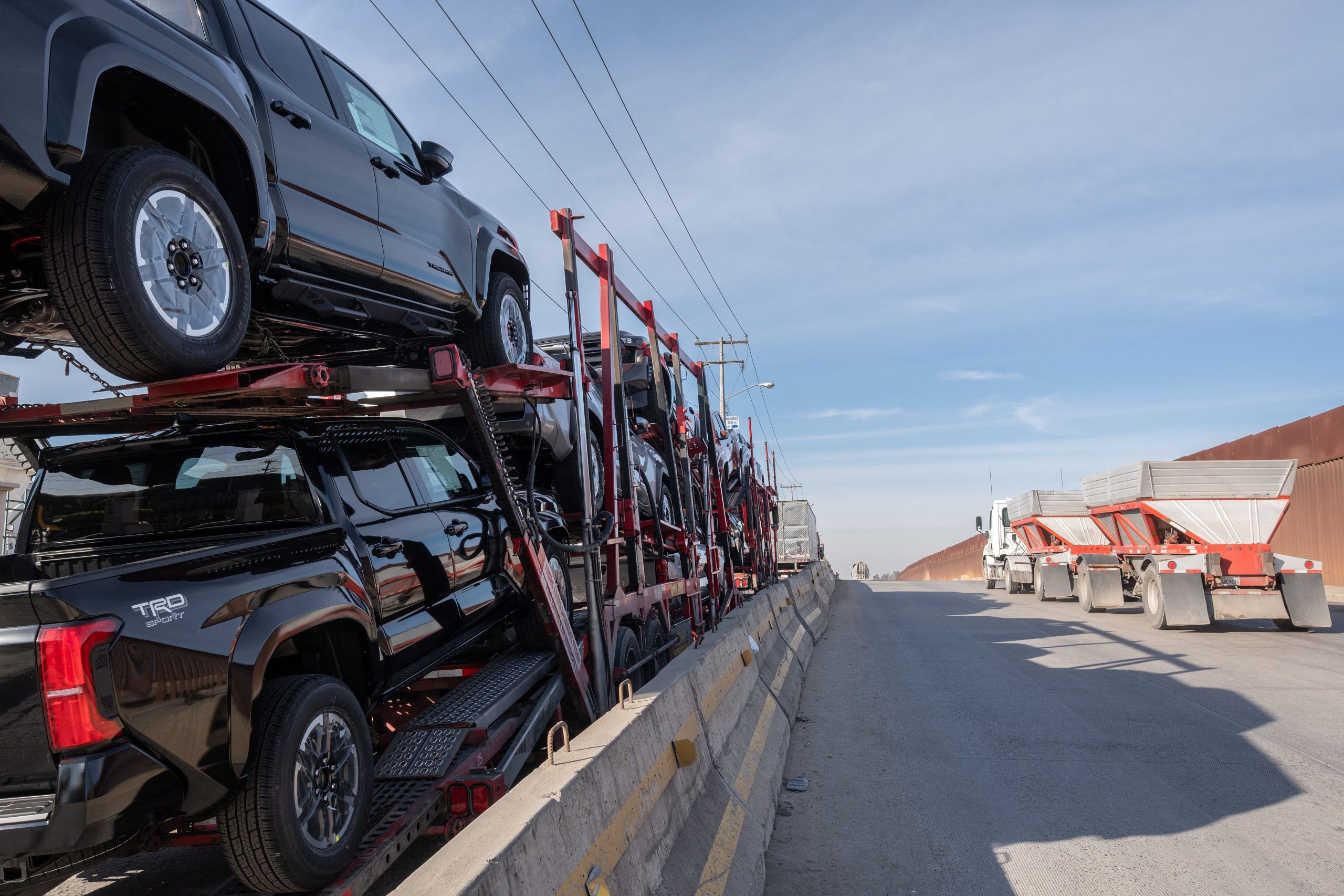Canadian automotive industry leaders are sounding alarms after U.S. President Donald Trump’s announcement of sweeping new tariffs, warning they will significantly raise vehicle prices and severely damage the auto sector.
“This is completely reckless,” stated Flavio Volpe, president of the Automotive Parts Manufacturers’ Association.
“Trump appears determined to ignore warnings that his policies could cripple the American auto industry,” Volpe said. “If he insists on imposing tariffs on Canada and Mexico, he’s risking the jobs of a million U.S. autoworkers. Either he doesn’t grasp the deeply integrated nature of our industries, or he simply doesn’t care.”
Trump confirmed a 25% tariff on all automobile imports starting April 2, with collection commencing the following day. He also demanded that the major Detroit automakers relocate their parts production back to American soil. Following the announcement, stock prices for Ford, General Motors, and Stellantis fell significantly in after-hours trading.
Candice Laing, president and CEO of the Canadian Chamber of Commerce, highlighted how closely connected the Canadian and American auto sectors are, noting automotive components typically cross the border multiple times during production. These tariffs could add thousands of dollars to vehicle costs.
“The damage from today’s tariff escalation won’t be confined to Canada, despite what the U.S. administration believes,” Laing stated. “Risking tens of thousands of jobs on both sides of the border undermines North America’s leadership in the auto industry, potentially pushing companies to invest and hire elsewhere. These tariffs could jeopardize the sector for generations.”
Trump’s executive order notably does not exempt vehicles built under the Canada-U.S.-Mexico Agreement (CUSMA) and explicitly describes these tariffs as “permanent.”
David Adams, president and CEO of Global Automakers of Canada, criticized Trump’s policies as contradictory to his affordability promises.
“We’ve consistently argued that these tariffs are effectively a tax on American consumers,” Adams said. He added that ongoing uncertainty from fluctuating announcements, temporary exemptions, and threats is harming the overall economy.
“Businesses thrive on certainty, and this constant unpredictability is causing considerable strain,” Adams remarked.
According to Volpe, Trump’s tariffs will likely trigger widespread automotive plant shutdowns across Canada and the United States.
“Trump shows little concern for the extensive economic disruption his decisions cause,” Volpe noted. “It’s time Canadians and our allies realize that appealing to reason may no longer be an option.”
Volpe believes Trump may only comprehend the scale of damage after the industry has already suffered severe harm.
“He might need to witness the collapse firsthand to understand his policies are flawed,” Volpe concluded, highlighting that unlike steel and aluminum tariffs, the broader auto tariffs cannot be sustainably absorbed by the industry.

